| DIRECTORY OF NIGHTCLUBS | ||
Search Results for: Puerto Rico
Eric Maldonado from La Paris All-Stars’ work behind the scenes
Latin music, more specifically salsa, has had several initiatives over time that have managed to keep it alive and relevant in the popular taste and one of them is undoubtedly La Paris All-Stars Orchestra, which is a musical group based on old school salsa, but with current technological advances.
The orchestra was created by the producer and sound engineer of Puerto Rican descent Eric Maldonado, with whom we have been able to talk about the group and his own career, so our dear readers can not miss this reading, as it will be very interesting.
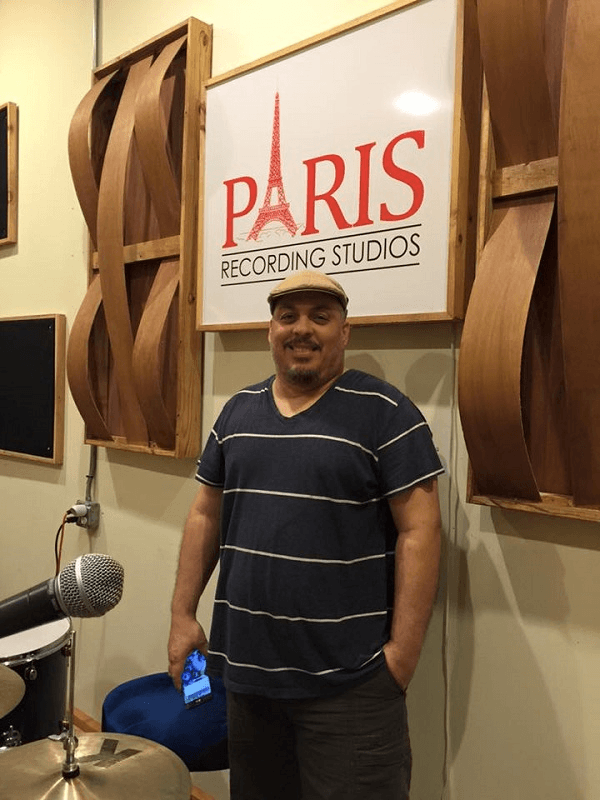
How Eric enters the world of music
Eric begins his story by saying that he was the youngest of the family and both his father and brothers were always playing instruments, so his first contact with music occurred when he was practically a baby. He says that there were always relatives at home every weekend who came together to play jibaro music, salsa, merengue, cha cha cha or whatever they could think of that day.
These family roots have encouraged to have a deeper interest in music, to the extent that he began to see it as a serious profession and not just a hobby.
Eric and sound engineering
By the time he turned 20 in the 1990s, Eric started playing bass in a band for a while, until he tried his hand as a soundman in the local band in New Jersey and realized that this was what he was truly passionate about. It did not take long for him to realize that being a musician was not his thing, but being behind the console and running the machinery behind the stage was. That is when he started purchasing the equipment he knew he would need and learning more about this part of sound engineering.
Eric defines himself as someone who does not really like to stand out too much or feel really observed by those attending a show, so he prefers to help all he can on the organizational part and at the level of engineering in the events that he is involved. He affirms that his thing is choosing the talent and creating all the music that the musicians or singers are going to use, while he stays behind the stage taking take that everything forges ahead.
He described feeling satisfied working in this way and has no problem with the artists taking most of the credit in front of the audience.
The Paris All-Stars Orchestra
It is important to note that, before founding the orchestra, Eric already had a recording studio called Paris Recording Studios. What inspired him to create a band was an event he did at a club in Florida shortly after moving to that city. The producer already knew some musicians thanks to his work and proposed them to form an orchestra that would take its name from the studio and be called La Paris All-Stars. ”That night, there were so many people who came to see us play that the place was packed and many of them were unable to get in. That’s when I knew this was going to be a success and the creation of the group was a good idea” said Eric about this first test concert.
Upon seeing how successful this first concert with the group was, Eric decided to record a complete album which he named ”Los Escogidos” since it would only include the best singers that he would choose for this record production.
He also wanted to clarify that he is the owner of both the studio and the orchestra and both go hand in hand in everything he does.
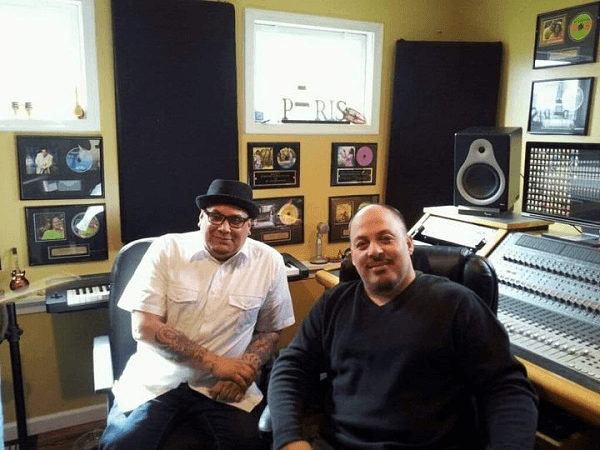
The Paris All-Stars Orchestra: old-school salsa with today’s tools
When we asked Eric if he agreed with those digital media that defined La Paris All-Stars Orchestra as an initiative linking old school with today’s tools, he answered absolutely.
Noticing that reggaeton and bachata no longer dominate the international market like they once did, Eric took advantage of the fact that there are many new artists wanting to experiment with salsa to make them his clients and work with them from any country such as Mexico, Cuba, Colombia, Venezuela, among others.
Although he added that he does not limit himself to any genre and works with a bit of everything, he assures that the music he loves the most is and always will be salsa. He regrets that broadcasters do not give a lot of exposure to salsa as before, but also highlights the support the exponents of the genre have received from media and digital stations that have been given a space to new salseros in different parts of the world.
Eric’s references for the Paris All-Stars Orchestra
When listening to any of the orchestra’s songs, there is no denying that its work is inspired by several of the biggest referents of salsa and one of them is Ismael Miranda, who was one of the members of the album ”Los Escogidos”, sharing the credits with Kevin Ceballos, Anthony Colón, Frankie Ruíz Jr., among others.
Eric called the previous artists, who already had an important name in the industry, in order to attract new singers to join his projects and, in this way, make them known to the public. The producer assures that he likes to help new talents and considers them a fundamental part in the promotion and the new rise of salsa today.
”I am very happy several of these new singers who worked with me have already been blazing their own trail and some of them are even doing big concerts, which makes me very pleased”, he said.
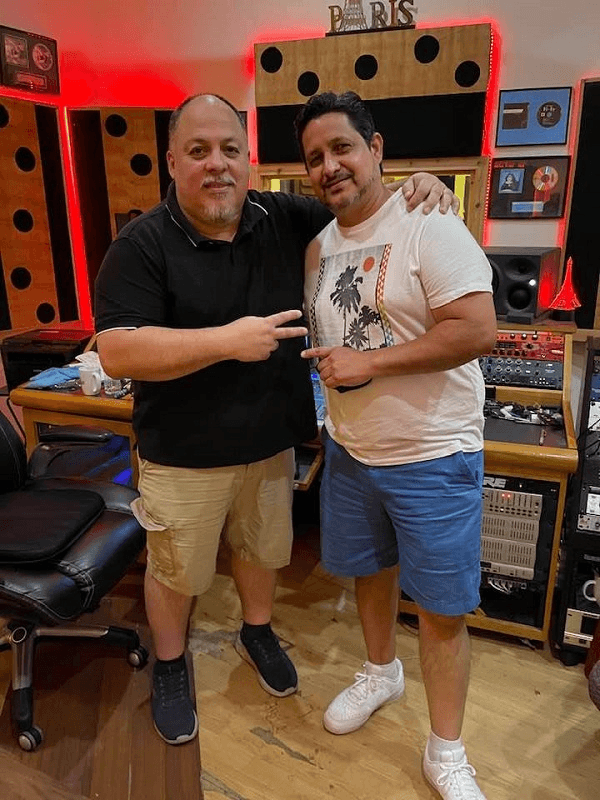
Latest works of La Paris All-Stars Orchestra
The first single from La Paris All-Stars in the year 2024 was ”Son Mentiras”, which, according to Eric, was to be part of ”Los Escogidos” at the beginning, but after recording so many good songs and finding so many talented vocalists, he decided to rethink his initial plan and only released it as a single. The final version of ”Los Elegidos” is scheduled to be released in June this year on all digital platforms after finishing a track still missing from the record production.
We also could not put aside the group’s new release ”Yo soy La Rumba”, which is part of ”Los Escogidos Volumen 4” and features one of the more promising salsa singer currently, Kevin Gabriel, a young talent who was born in Puerto Rico and has managed to participate in several renowned ensembles and orchestras thanks to his great voice.
One day, Eric heard Kevin Gabriel singing by sheer chance and became fascinated with the young man, but he knew that the label with which he had signed was not exploiting his full potential, so he proposed him to join his project and he accepted. Together with him, Eric released ”Yo Soy La Rumba” and soon there will be an entire solo album of the young singer. This boy is a clear example of what Eric seeks to promote with his work and has no doubt that there will be many more like him, whom the sound engineer will be more than happy to support.
Read also: Medusa Pop Band delights its fans with a pretty interesting mix of rhythms
Unstoppable Hollywood Salsa Fest focuses on the importance of Salsa
In the midst of the release of the single in which she collaborated with Edwin “El Calvito” Reyes ‘Dos pa’ lante’, on April 13, 2024; Melina Almodovar performed at the most important salsa festival in South Florida in the U.S. Melina also serves as an entrepreneur, along with her partner Cristina Moinelo, for the past nine years.
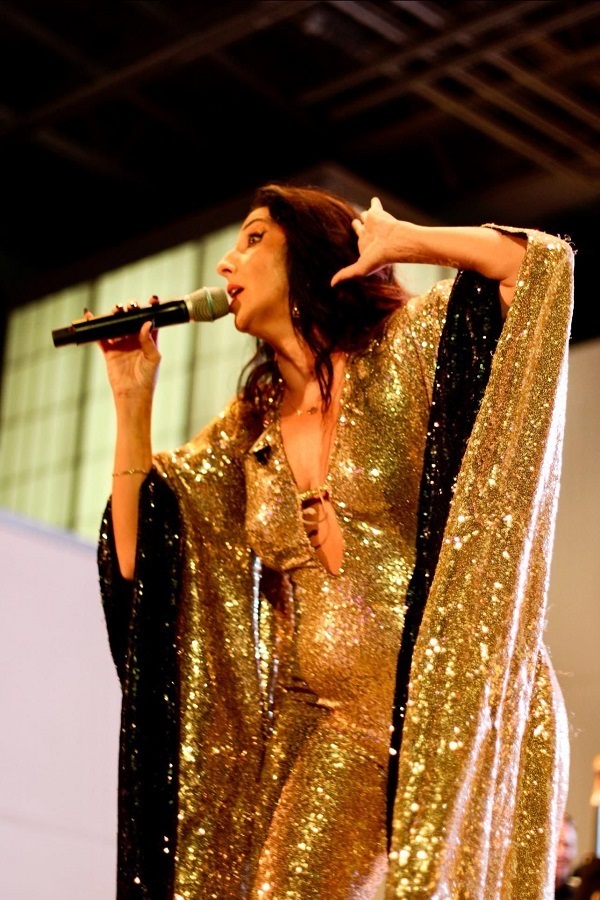
Each year, the Hollywood Salsa Fest focuses on the importance of salsa music, recognizing that Afro-Latin music fuses us into a culture that draws from diverse roots. This year’s festival – sponsored by the city in a public-private partnership with various businesses – was held at the Artspark at Young Circle.
As masters of ceremony, the festival featured the winning team of “Meca” from Salseo Radio and “El Cacique” from Zeta 93 FM, Puerto Rico’s leading salsa radio station. On the decks was DJ “Boricua loco” with a tremendous selection of salsa, in addition to coordinating from his musical corner the dance exhibitions by the salsa dancers of YC Dance Studios.
The first orchestra in charge of starting the concert, Latin All Stars, counted with the vocal and scenic mastery of Marlon Mendioroz, Yorman Clay, Adrián Marchant, Yomil Rivas and Frank Cróquer, backed by a musical team that did not fall short of the expectations of those who waited patiently for the stage to light up with good salsa. Latin All Stars was followed by “Juano, tu cantante” from Cali, Colombia. The team of musicians of the orchestra with the second shift shined accompanying who for 16 years was part of Orquesta Guayacán.
The trumpet player also performed in the mid-afternoon block, preceding the arrival of the Hollywood Salsa Fest Orchestra in a segment in which they accompanied Hilda Naranjo from Cuba, Fabián Rosales from Chile and Joey Hernández from Puerto Rico.
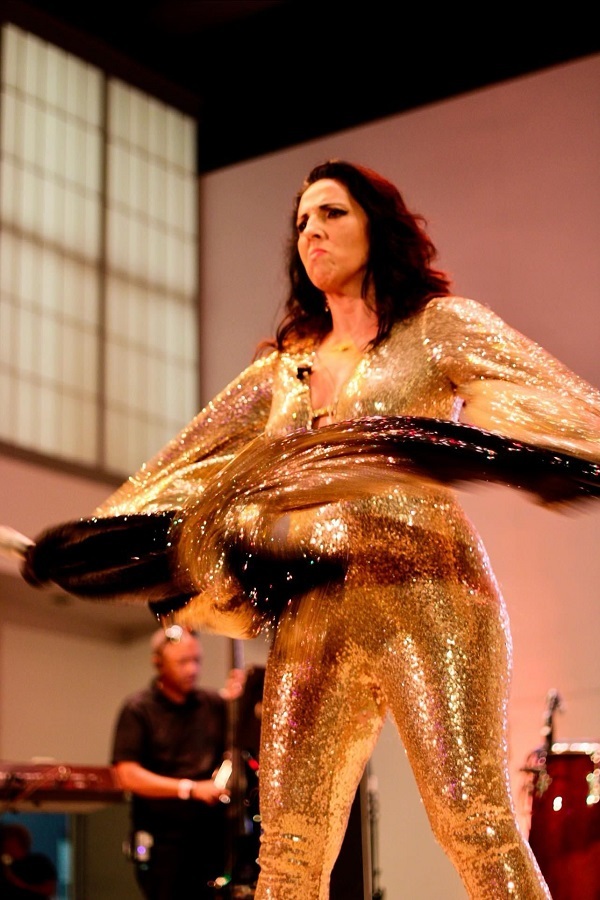
At around 6:00 p.m., it was the turn of the Cuban sound known as timba, with the Julio Montalvo Orchestra and Miami’s Huracán. Once the hurricane winds that accompanied Julio Montalvo ceased, tribute was paid to the late Venezuelan percussionist Robert Vilera thanks to the staging of Vilera Son. The tribute to Vilera’s legacy featured the talents of Los Gaitanes from Panama, Avelino Romero from Venezuela, El Mola and Braidsman from Cuba, as well as Robert Vilera’s first singer, Felix Argenis.
“La muñeca de la salsa”, Melina Almodovar, was backed by Luigi Flores from Costa Rica on piano and musical direction, Johnny Fortunato from Dominican Republic on bass, Pablo Molina from Venezuela on timbales, Juan Pablo Camacho from Venezuela on tumbadoras, Carlos Molina from Venezuela on bongo, Carlos Perez from Cuba on first trombone, Ramon Benitez from Colombia on second trombone, Carlos Frank from Cuba on first trumpet and Julian Cifuentes from Colombia on second trumpet.
On backing vocals, Melina was backed by: Joe Arroyo from Puerto Rico and Freddy Lugo from Cuba. Melina gave us a first class show. As part of Melina’s performance, “El Calvito Reyes” joined her for the first time to perform the recently released single ‘Dos pa`lante’ as a live duet.
During the afternoon, the festival took place under a beautiful blue sky that kept the crowd’s enthusiasm positive. During the night, the clear Floridian skies kept the attendees dancing at full steam. Of course, to that end, the aforementioned talents kept the stage in salsa.
The festival closed with the always remembered for the classic ‘De barrio obrero a la 15’, Chamaco Rivera, who with a stellar salsa career to his credit, not only kept the audience engrossed in his impeccable staging, but also introduced us to his guest artist, his son: Christian Ray.
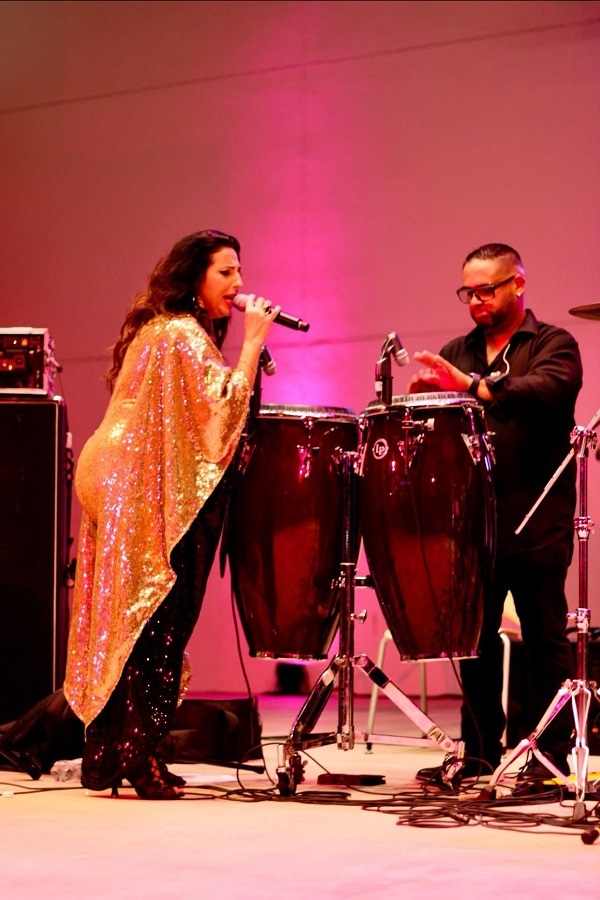
Christian delighted us with his repertoire shortly before inviting us to listen to his recently released CD entitled El legado continúa. To bid farewell to the musical day, which lasted nearly ten hours, the grand finale invited the group of singers who had paraded on stage during the day and part of the night to come in and jam with the “papa de los pollitos” (father of the chicks).
We are waiting to enjoy the next ‘Hollywood Salsa Fest’, for which the businesswomen in charge promise to throw the house out of the window. Melina and Cristina have delivered nine festivals in a row. So see you in April 2025 to dance in the tenth edition of the same.
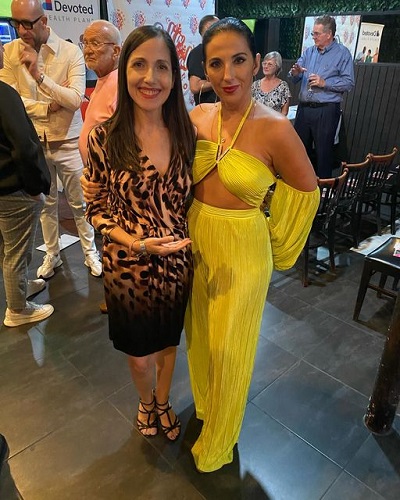
Also Read: A party of dancers at the concert to celebrate Willie Rosario’s 100th birthday
Willie Rosario, El Rey del ritmo by journalist and music researcher Robert Téllez M.
Puerto Rico Date Be more by Bella Martínez writes announces the release in Puerto Rico of the second edition of the authorized biography of Míster Afinque, Willie Rosario, El Rey del ritmo by music journalist and researcher Robert Téllez M.
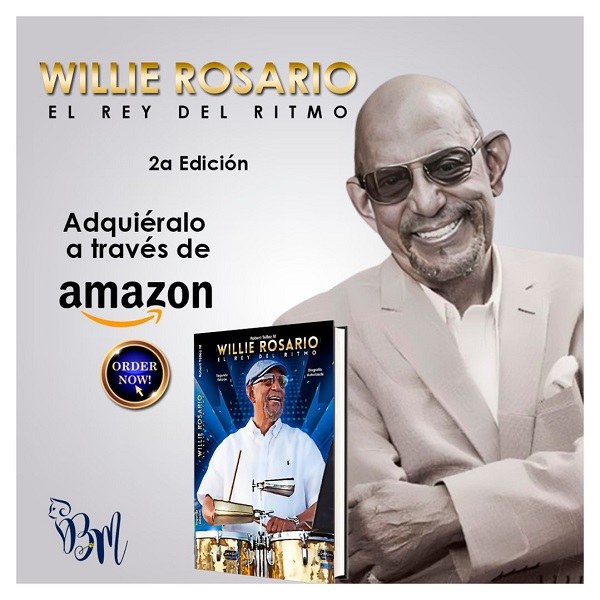
This second edition, which has been revised, expanded and updated, has 62 more pages, every time master Willie Rosario has remained active since the publication of the first edition in 2019 to date. It also contains photographs that were not included in the first edition, images from Willie Rosario’s own archive and from the archive of the most important salsa collector, Robert Padilla.
The book, which has a preface signed by musician “Bobby” Valentín and a foreword by researcher José Arteaga, also compiles significant accounts from composers, musicians, instrumentalists, arrangers and vocalists who have been part of Rosario’s orchestra throughout different periods.
The new cover photo is by photojournalist Conrado Pastrano, the cover design is by graphic artist Felix Disla and the illustrations are by artist Frank Rosado.
The content of the back cover of the first edition, which includes the praises of Edwin Clemente, Edwin Morales, Elmer González, Hiram Guadalupe Pérez and Néstor Galán, was moved to the inside of the text, adding the recently captured praise in the voice of Ricardo Padilla, programming director of Salsoul radio station.
The back cover text is by the prodigious arranger, composer and music producer, who was exalted to the Hall of Fame of the U.S. East Coast and who, like Willie Rosario, is a timbalero and orchestra leader: Tito Rodríguez, Jr. Tito tells us about “El Inolvidable’s” friendship with Willie Rosario, as well as the way in which Mister Afinque received from Tito Rodríguez the first songs that Rosario would record with his orchestra, including the classic ‘Changó ta vení’ (composition by “Justi” Barreto), arranged by René Hernández. He also shares with us the closeness between Willie Rosario and Tito Rodríguez since they were neighbors in the Bronx, NY until they became colleagues and developed a friendship based on companionship and mutual admiration. In a nostalgic way, he highlights the golden years of El Palladium. As if all this were not enough, Tito candidly offers his opinion on Willie’s contribution to the salsa sound, which he reinvented by adding the baritone saxophone to his orchestral format, which at the time was thought to be an experiment, and on the permanence of that contribution within Latin music.
The publication of this second edition of Willie Rosario, El Rey del Ritmo comes just in time to add to the centennial celebration of the musical leader, who has managed to keep his orchestra active and alive for more than six decades. The book is now available in physical format and can be purchased through Amazon.
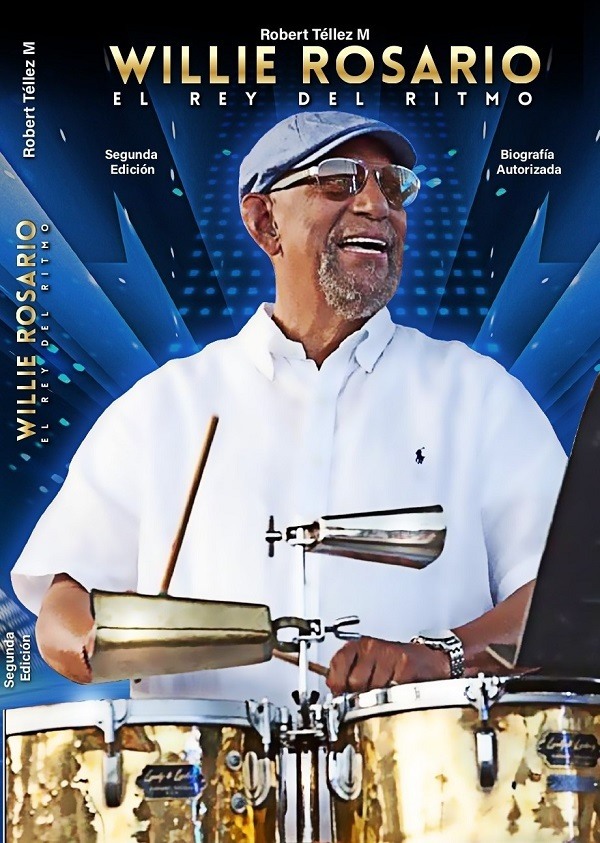
About the author:
The author, Robert Téllez M, is a music journalist, broadcaster and audiovisual media producer. He is a member of the Círculo de Periodistas de Bogotá (CPB) and since 1998 he has worked as a programmer for different music radio stations. For nine years he directed and hosted the program Conversando La Salsa on Radio Nacional de Colombia. He was also founder and general director of Revista Sonfonía. Robert Téllez M stands out as a researcher dedicated to Afro-Antillean music. His in-depth research has led him to serve as a consultant and lecturer, specializing in the appreciation of salsa music.
Published books:
* Ray Barretto, Fuerza Gigante (2016).
* Willie Rosario, el Rey del ritmo [Authorized Biography] (2019, 2024).
* Ray Barretto, Giant Force (2021), the translation by Ronald Vazquez of Ray Barretto, Fuerza Gigante, is the silver medal winning literary work for best Spanish to English translation at the International Latino Book Awards, 2021 edition.
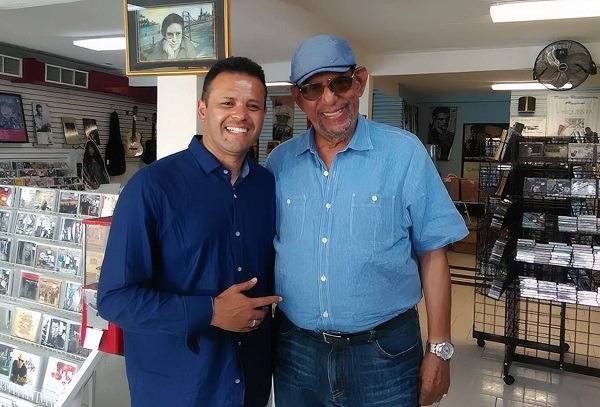
Also Read: Metamorphosis: from music to photojournalism, a reinvention without limits
A party of dancers at the concert to celebrate Willie Rosario’s 100th birthday
The now Doctor of Music Willie Rosario managed to fill a Puerto Rico Coliseum, with a capacity of 18,000 people, for the celebration of his 100th birthday. The production of the concert ensured that the musical proposal kept the audience dancing and singing along. It was no surprise that the “Choliseo” turned into a gigantic dance floor.
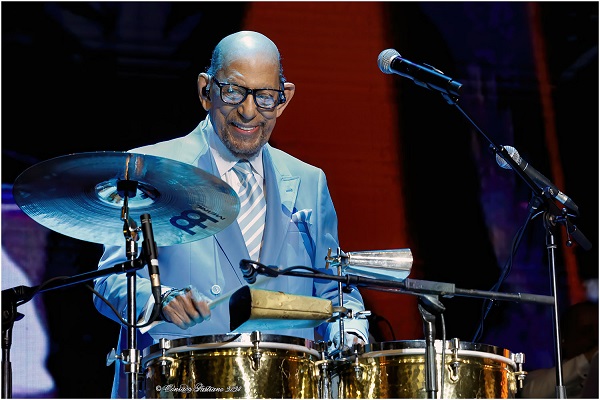
Vocalist “Chamaco” Rivera was in charge of the performance of Willie Rosario’s orchestra’s first hit. Chamaco”‘s announcements alluded to the parallel of the Barrio Obrero, between our “santurcino” neighborhood of Borinquen and its namesake, located in Cali, Colombia.
Then came the current front of “the band that delights” to perform a selection of the group’s countless hits. The first turn went to José Luis De Jesús “Papa Chú” with the impeccable interpretation of ‘Ojalá que te vaya bonito’. At one point, when the song called for a duet performance, José “Machete” Díaz was the accompanist.
Smiling and with his voice cracking with emotion, Rosario greeted the audience, shortly before saying: “Thank you very much for coming this far” and giving entrance to “Manolito” Rodriguez, handing him the timbal. “Manolito” took the helm of Willie Rosario’s orchestra during several songs to which the young timbalero and musical director imparted his own tempo.
‘Anuncio Clasificado’ and ‘Cha-cha-ri-chá’ were heard in the voice of “Machete”, ‘Échame la culpa a mí’ and ‘El callejero’ in Erick Robles’ interpretation, and ‘Preparen candela’ with “Papa Chú” leading on vocals. Juventud del presente’ was heard in the voice of Rodriguez himself, who showed off his skills as a timbalero, director and singer, while dancing in choreography with the members of the vocal front.
During the segment in which “Manolito” led, the child Gerardo Gabriel Rivas entered into an explosive duel of timbales, corresponding with who, at the time, was acting as director. Humberto Ramírez interpreted the song ‘Míster Afinque’, which he composed and arranged in 2023 in honor of Rosario and which is part of the production Better Days.
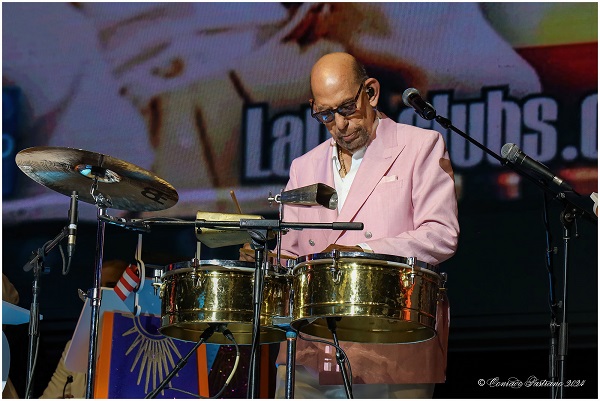
At about ten o’clock at night, the birthday boy took over the orchestra to “continue in afinque”. With the “afinque”, came the main course of the concert, for which “El Rey del ritmo” arrived on stage this time accompanied by the duo composed by Gilberto Santa Rosa and Tony Vega.
Gilberto looked impeccable both in his vocal role and in his staging as he performed ‘Babarabatiri’, ‘Obra sellada’, ‘La mitad’, ‘Me tendrán que aceptar’, ‘Botaron la pelota’ and ‘Changó ta’ bení’. During the delivery of this last song, Santa Rosa was accompanied by a corps of veteran dancers, among them the always remembered “Mike” Ramos, known within the Palladium Mambo Legends and within the Mambo Aces as “Mambo Mike”.
Tony Vega was in charge of the interpretation of ‘Mi amigo el payaso’, ‘Busca el ritmo’, ‘A toda Cuba le gusta’, ‘Arrepentíos pecadores’, ‘El flamboyán’ and ‘El timbal de Carlitos’. Gilberto and Tony were able to transport the audience back to the days when they shared the hits of maestro Rosario’s orchestra, singing ‘Gracias mundo’ and ‘Lluvia’ as a duet. The team that shaped the centennial celebration of the successful bandleader paid attention to every detail of the presentation to make it a historic, unforgettable and unrepeatable one.
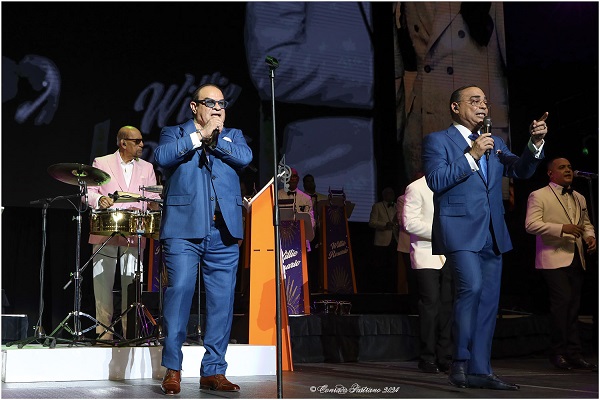
The detail that “El Caballero de la salsa” imparts to each of his concerts, highlighting each of the artists in the audience also took place in this event. The list of colleagues invited to the concert included Choco Orta, Luisito Carrión, Domingo Quiñones, Moncho Rivera, Ismael Miranda, Bobby Valentín, Jerry Rivas and Chucho Avellanet.
Although it is known that it is impossible to include all the hits of such a great career in three hours of concert, the selection of the repertoire was accurate and forceful. At almost 100 years old, bandleader Willie Rosario proved once again that, with his usual affinque, he continues to lead the salsa dancer’s favorite orchestra.
Also Read: Déjalo, the latest track by Pedro Conga y su Orquesta Internacional























